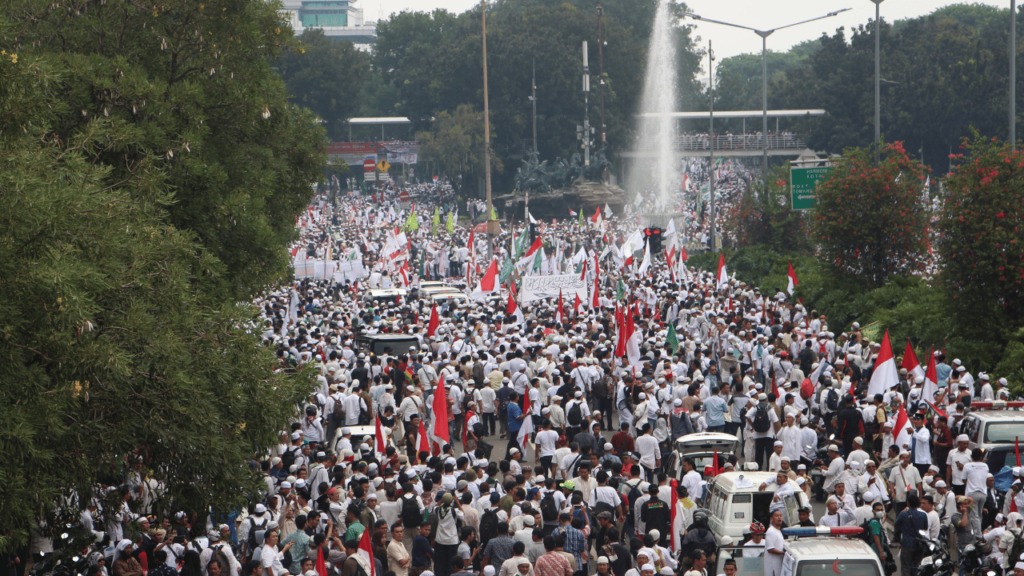On January 11, several thousand protesters gathered in Riesa, eastern Germany, to protest against the congress of the far-right AfD party.
The protesters managed to disrupt the event aimed at adopting the party’s electoral program for the legislative elections. They blocked access to the convention center, forcing the police to manage attempts to break through barriers and occasional disturbances.
The organizers of the mobilization, under the banner “Widersetzen” (“Resist”), claimed the success of their action, stating that the congress had been delayed. Indeed, the AfD delegates, who were meeting to confirm Alice Weidel’s candidacy for chancellor, had to face these protests.
Alice Weidel, the party’s figurehead, is known for her extreme positions on immigration, Islam, and social policy. She describes Islam as an “archaic culture” and sees Muslim immigration as a “threat to our future”. She vigorously criticizes Sharia law, denouncing gender inequality which she deems incompatible with German values.
The AfD, with an increasingly radical policy, has managed to attract growing support, currently estimated between 18 and 21% of the vote, placing it second in the polls. The protesters vigorously opposed the rise of this discourse, calling for a more inclusive and solidary society.




